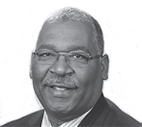
DANIEL McCLOUD
While this film and others such as “Suppressed 2020: The Fight to Vote” detail the sometimes-subtle voter suppression, history has shown us that these tactics come in many forms, some not so subtle. It begs the question of what lengths would individuals go to deny Americans their right to vote. Given the current racial tensions, the possibility of election day disturbances have moved beyond whispers. And let us not forget the country’s history of violence.
Consider the riots that took place on Nov. 3, 1874, near Eufaula, Ala., when members of the White League murdered at least seven Black voters and injured nearly 70 more. In case you think that election day violence is only relegated to the 19th century, consider the Brooks Brothers riot of the 2000 presidential election. On Nov. 22, 19 days after election day, with the presidency hanging in the balance, election officials, upon arriving in downtown Miami to oversee a ballot recount, were met by a mob of men wearing Brooks Brothers jackets. These individuals yelled, screamed and threatened the election officials.
Ultimately, the 2000 election was decided by the Supreme Court. Many believe that the highest court in the land could determine the results of this election.
Flashback to 1876, again the presidential election hung in the balance, only this time, subtle negotiations were the tactic used. This election of 1876 was decided by a special commission, comprised of five House members, five Senators, and five Supreme Court Justices. Ultimately Supreme Court Justice Joseph Bradley cast the deciding vote, but only after a compromise was reached to end Reconstruction.
Whether through abrupt violence or subtle compromise, elections have been decided by more than the vote. Too often, there are other factors at play. Whether In the fight for freedom and the thirst for power, the vote has always been the prize. Losing elections have consequences. The vote is precious, based on the notion that all can have a say. Despite what reality has shown us, too many have fought and died for the right. Let’s reflect on the past and prepare for the future, with a voice in the present. Every vote still counts.
